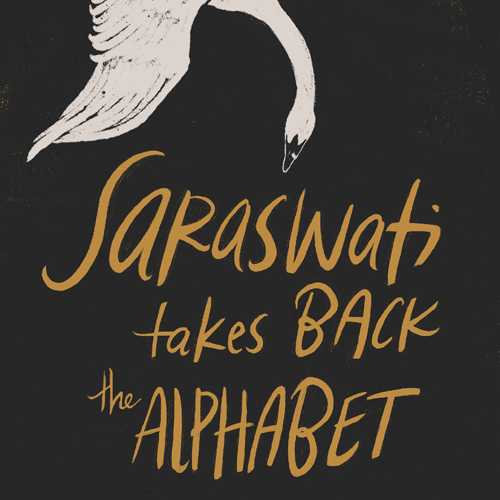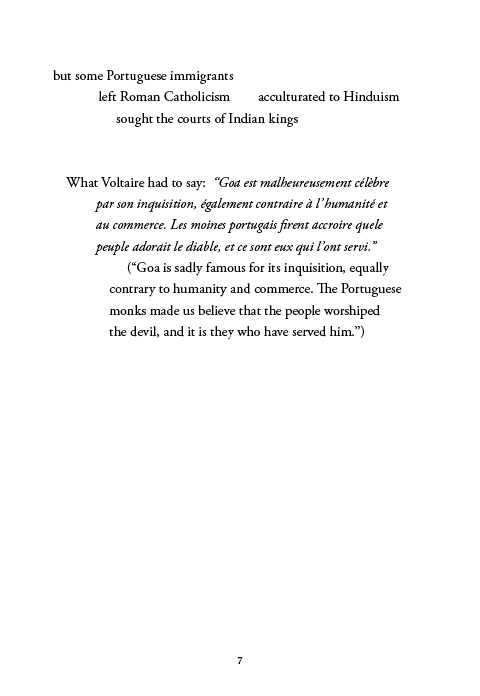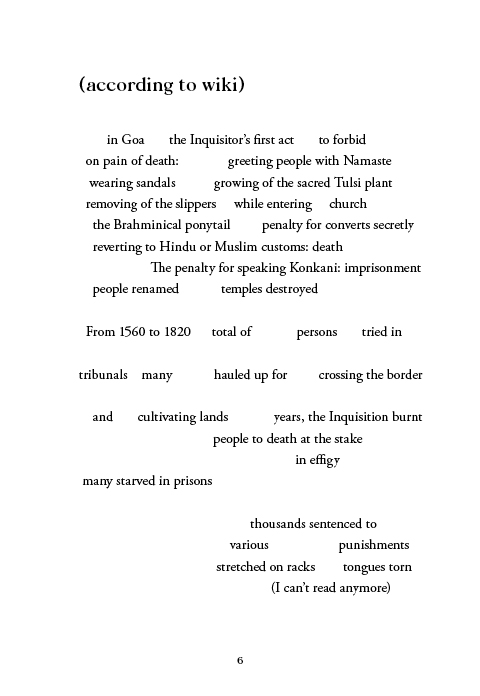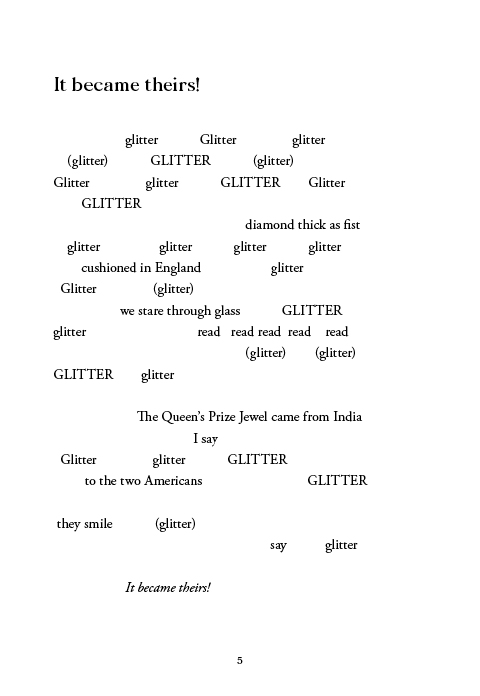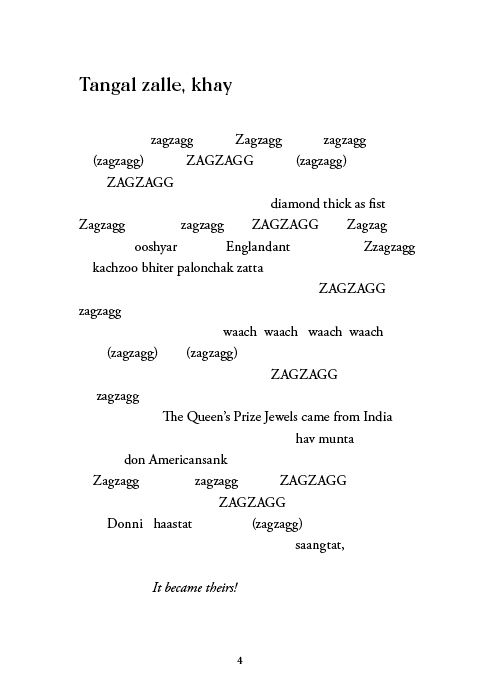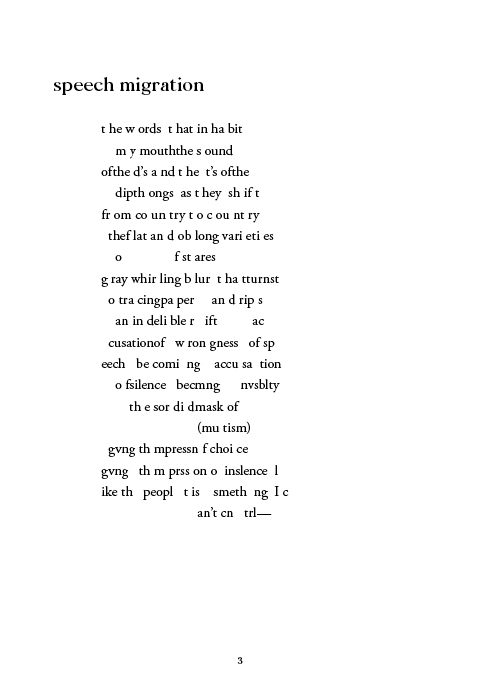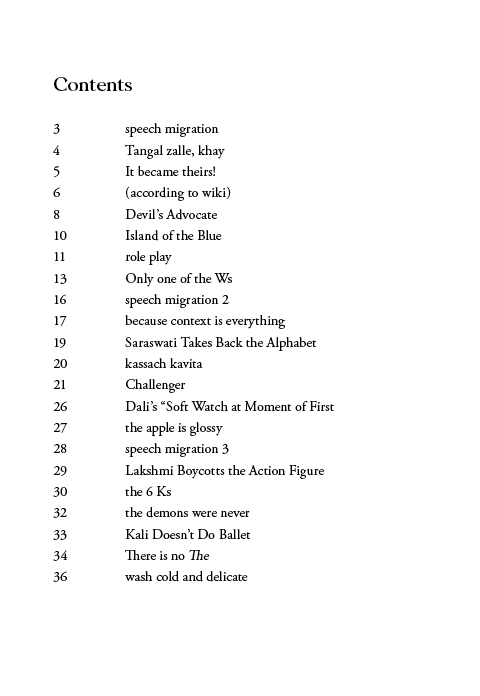Saraswati Takes Back the Alphabet • E-book
Details
- Selected for the 2019 Emerging Poets Chapbook Series
- Saddle-stitched, risograph cover, 44 pages, 5″ x 7″, FSC-certified paper
- Purchase allows three interactive PDF or EPUB downloads
- Order print + e-book
- Order print book only
Praise
“Saraswati Takes Back the Alphabet bursts onto the page in pieces, between languages, the product of a colonial past imagining a future in which “everyone / uses plural in the singular.” Unfolding in India, the United States, and globally, these poems probe the ways that history gets told by oppressors and how institutions from museums to schools reproduce that violence. Saraswati Takes Back the Alphabet aims to write through history, otherwise: to take back not just the alphabet but syntax too. Kamat’s lyric vision is vast, particular, and urgent, pointing us always towards the horizon and whatever lies beyond.”
–Stephanie Young
“Saraswati Takes Back the Alphabet feels like a gift, though I don’t want to assume it is for me, and I don’t want to intrude on the beauty of its landscape. Kamat is both fierce and gentle in these poems as she allows the reader to see into a history that is at once personal, local, trans-national, and global. Kamat doesn’t excuse the colonizers, nor does she excuse those who offer alibis for them. She insists that the reader acknowledge history, its violence, and how that history and violence has trickled down for generations, how it sits in language, museums, pop culture, elementary schools. She does this with striking beauty and clarity of voice, writing in both English and Konkani: ‘Kittle ghant zalle? / the moth ate the one / someone stole the two / hid it inside the moon.’”
–Hilary Brown
“Any verse worthy of the name poetry makes language and the culture it supports new. Shilpa Kamat’s engaging Saraswati Takes Back the Alphabet does just that. Her newness is not, however, for the sake of experimentation, but grows out of a fundamental condition of humankind: migration. The Konkani culture and language of southwest India are the starting point for the poet’s search for poetic form. The layers of culture—Hindu, Portuguese, British, among others—are then translated into present-day America; translated not so much in the primary sense of one language to another (although there is that), but translated as in changed or moved from one place to another, especially from a condition bound by time to one that is timeless. These poems sing to the places we all find and the inevitable displacement we feel.”
–Greg Hewett, author of Blindsight
Author
Shilpa Kamat is a writer, educator, and healing arts practitioner based in Northern California. She has an MFA in Creative Writing from Mills College, where she was awarded the Marion Hood Boess Haworth Prize. She was a finalist for Tu Books’ New Visions award. Her work is informed by her intersectional identities, her spiritual journey, her diverse communities, and the natural world.
Artwork
Cover by LK James.
$2.99

